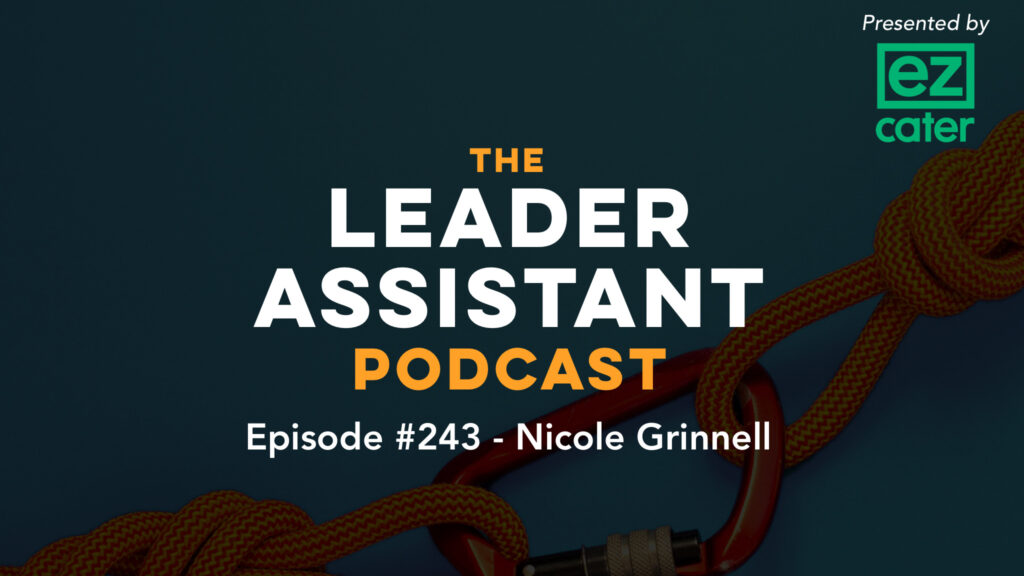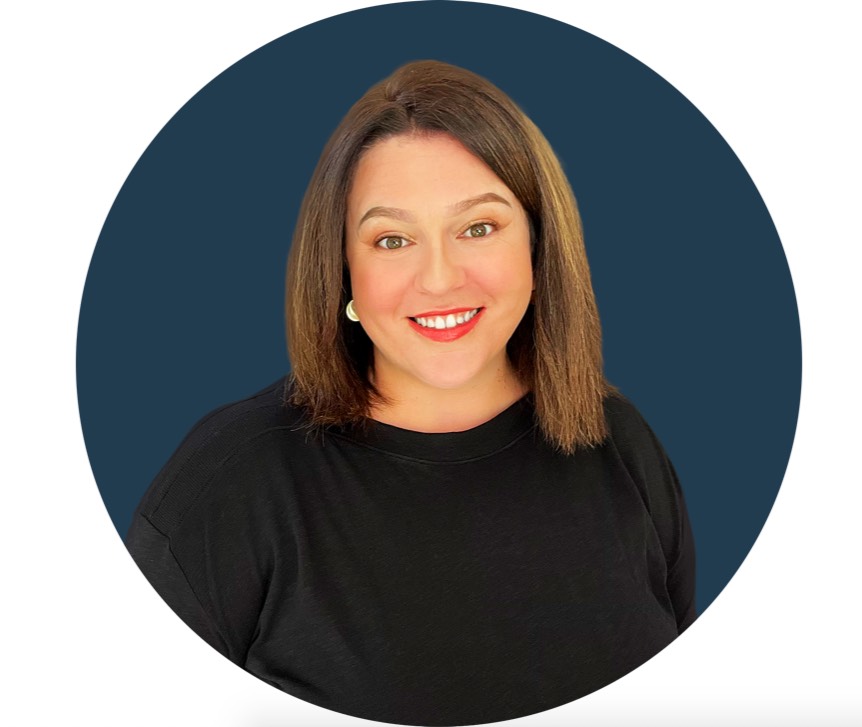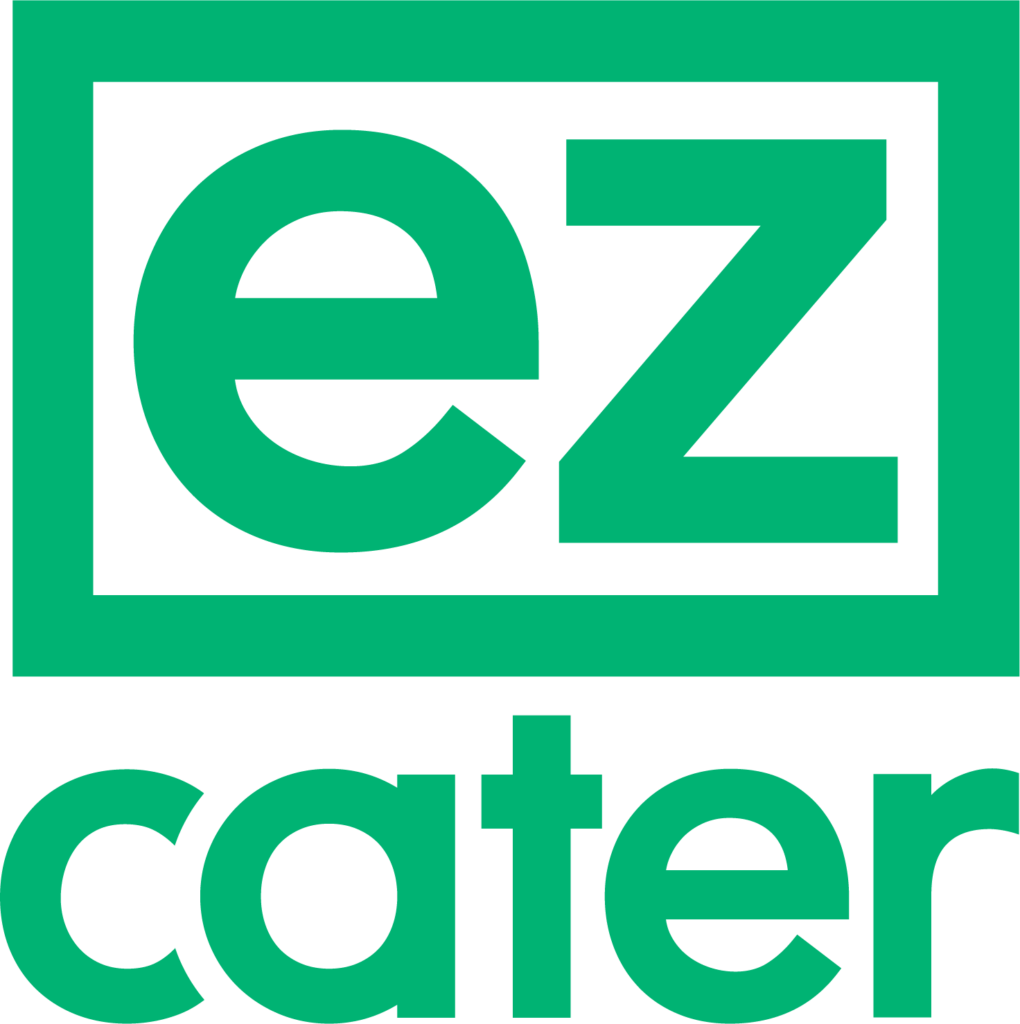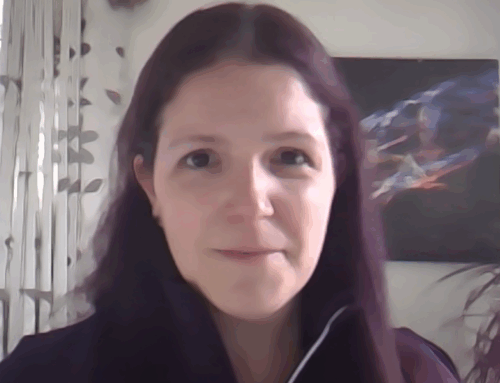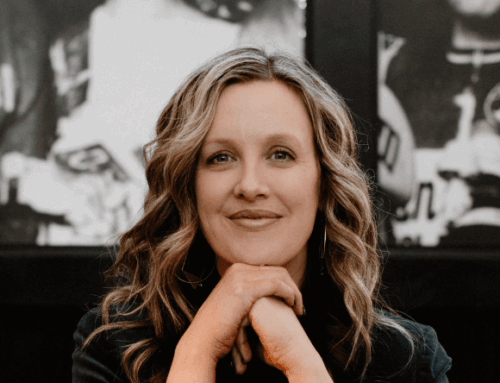Nicole Grinnell took the idea of being a virtual assistant and turned it into a multimillion dollar company.
In this episode of The Leader Assistant Podcast, Nicole talks about the art of delegation, building a support system, being a mompreneur, and unlocking your productivity potential.
CONNECT WITH NICOLE
ABOUT NICOLE
Nicole Grinnell is the CEO of a multi million dollar company and has a passion for helping other business owners find affordable solutions to help grow their business. Her strong work ethic and her own experience as an executive assistant in the corporate world has formed her into the leader she is today in the staffing and marketing industry.
Nicole possesses a wealth of experience and expertise in the world of staffing and marketing. Her visionary leadership has driven Bosun to become a trailblazer in delivering flexible staffing solutions to businesses of all sizes. She has also paved her way into becoming a marketing expert though the podcasting industry with her second business, Mic’d Up Booking, which is a podcast agency.
–––
THE LEADER ASSISTANT PODCAST IS PRESENTED BY EZCATER
ezCater is the nation’s most trusted provider of corporate food solutions — the best way for companies to order food for daily employee lunches, meetings, and events of any size or budget. ezCater’s simple-to-use platform provides a network of over 100,000 restaurants nationwide, business-grade reliability, food spend management tools, and 24/7 support from their highly trained customer service team.
To explore corporate food solutions or place a catering order, visit ezcater.com.
–––
THE LEADER ASSISTANT PREMIUM MEMBERSHIP
To learn more about how you can join growth-minded Leader Assistants, check out our Leader Assistant Premium Membership for ongoing training, coaching, and community.
THE LEADER ASSISTANT BOOK
Download the first 3 chapters of The Leader Assistant: Four Pillars of Game-Changing Assistant for FREE here or buy it on Amazon and listen to the audiobook on Audible. Also, check out the companion study guide, The Leader Assistant Workbook, to dig deeper.
LEADER ASSISTANT LIVE EVENTS
Check out our constantly updated schedule of events for admins and assistants at LeaderAssistantLive.com.
JOIN THE FREE COMMUNITY
Join the Leader Assistant Global Community for bonus content, job opportunities, and to network with other assistants who are committed to becoming leaders!
SUBSCRIBE
Subscribe to The Leader Assistant Podcast so you don’t miss new episodes!
You can find the show on Apple Podcasts, Spotify, Google Podcasts, Pandora, and Stitcher.
Join my email list here if you want to get an email when a new episode goes live.
LEAVE A REVIEW
If you’re enjoying the podcast, please take 2 minutes to rate and review the show on Apple Podcasts here. Each review helps me stay motivated to keep the show going!
–––
EPISODE TRANSCRIPT
Podcast Intro 0:05
The Leader Assistant Podcast exists to encourage and challenge assistants to become confident game changing leader assistants
Jeremy Burrows 0:21
are you tasked with ordering food for your office? Let me tell you about ezCater with over 100,000 restaurants to choose from nationwide and 24/7 customer support. EzCater helps assistants like you and me succeed at work and makes our lives easier. Visit ezcater.com/leaderassistant to find out more. Hey friends, welcome to The Leader Assistant Podcast. It’s your host Jeremy Burrows and welcome to episode 243. You can check out the show notes at leaderassistant.com/243. That’s leaderassistant.com/243 to check out the show notes and information on this episode. Today I am speaking with Nicole Grinnell. Nicole is the CEO of a multimillion dollar company and has a background in being an executive assistant. So excited to hear Nicole’s story and chat with her today about a little bit about delegation and unlocking productivity potential. Nicole, welcome to the show.
Nicole Grinnell 1:29
Thank you so much for having me. I’m excited to be here. These are two of my favorite topics. So I’m very excited to be on the show.
Jeremy Burrows 1:35
Awesome. Awesome. So you are what part of the world are you in? And what’s maybe your favorite hobby?
Nicole Grinnell 1:42
Yeah, so we are in the Atlanta area. And favorite hobby for sure has to be travel. We’re a big traveling family. So love to get out there and explore and have different experiences and just see the world.
Jeremy Burrows 1:56
Nice. Have you been in New York City? Is that one of the places you’ve traveled?
Nicole Grinnell 2:00
Many, many, many times? Yeah. Go every year for Christmas. That’s my favorite time to be there. So.
Jeremy Burrows 2:05
Okay, we’re actually going the weekend before Thanksgiving. So that’s a great time. What’s your number one? Like you have to do this. We have two kids, their two boys that are nine and 11. So what’s like the number one thing we have to do in New York?
Nicole Grinnell 2:22
Okay, so for that time of year, you’re getting close to Christmas stuff being open. So and I only say we actually honeymoon the week of Thanksgiving in New York. So Rockettes it’s a great show, you know, obviously Rockefeller pauses see the tree, you might even be at timing of it lighting, possibly so interesting. All those traditional holiday things, go to the plaza, just walk through go through the park. You know, everything that you see online is really what you should hit.
Jeremy Burrows 2:49
Nice. Cool. Well, we’ll definitely do that. Yeah. Awesome. So tell us a little bit about your career. Where did you really after school and all that fun stuff? Where did you jump in? And then how did you end up being an assistant and tell us a little about your assistant experience, and then we’ll work our way back to the current day.
Nicole Grinnell 3:10
Yeah, so I always joke honestly, that I feel like I was almost born to be an assistant, I just kind of had that childhood, I grew up around a lot of boys or a lot of boys in a neighborhood. And I was always the person getting the lunches together, planning the events, doing, you know, whatever, telling everybody where they need to go. I’m sure in that time, and in childhood, it’s called bossy, but I think I was just kind of leading and organizing. And so that naturally translated into my career, my parents owned a small business. So that was sort of the role that I got put in there. And I think that experience really helped me be a very good EA, and really went beyond what people probably thought of as traditional assistant duties. And so I think that’s really what has helped me in my career. And then obviously now into my business as well.
Jeremy Burrows 3:57
Nice. So what kind of experience did you have as an assistant? Like, did you work? In what industry? And you know, I’m assuming in office, but did you support the C suite? Did you support a bunch of VPS? What was the tilt a little bit about your EA? Time?
Nicole Grinnell 4:16
Yeah, a little bit of both. So right out of college, I actually worked as kind of an assistant in a medical office, then I actually was fortunate enough to get a role with pilot travel centers in the Knoxville area. And I was supporting a lot of the VPS all over the country. And I was kind of always brought in as like an assistant right like there she’s going to help with I mean, this was back in the days of like, filing and just you know, sending out paperwork and handling mail. And then very quickly I feel like everyone I worked for realize that I had a lot of operational experience in my background and was able to really take and problem solve very quickly. And so I sort of moved up. At one point I wound up like semi running the marketing department, you know, it was just kind of like oh, she can Do it, give it to her. And then my last career before I started the business, I was actually supporting COO, General Counsel and CTO at a processing credit card processing company. And that was, you know, that was a whole other level to really see one of them was an owner of the company. And so it was a, it was a really cool experience for me. So I had a lot of corporate. But again, back to my kind of entrepreneurial roots of just you got to find an answer, you got to figure out a solution. I think that’s what has really set me apart. And honestly, what I encourage EAS to do is to think like an owner, don’t think like an assistant.
Jeremy Burrows 5:40
Yeah, well said. So then tell us about the transition. What what happened to kind of push you out of the corporate EA world and into what you’re doing now and give us a little bit more context as to what you’re doing now.
Nicole Grinnell 5:57
Yeah, so I’m the CEO that I was mainly supporting, actually retired. And so he took a step back, and I have children, I had young children at the time. And so he was very flexible with me, which honestly, is not common in the EAA world. And so I was able to kind of take them to school and pick them up. And so when he retired, I thought, you know, well, corporate life is probably just not going to be for me, it’s typically a pretty hourly demanding role. And at the time, the buzzword was really like virtual assistant. And so I thought, well, this is this is my game, I’ll go be a virtual assistant. And within honestly, two weeks, I had more clients that I couldn’t even handle. And so I really realized, like, oh, this fractional support and the business owners that need quality executive admins, but are not to the point of bringing someone in for six figures. Or maybe they don’t even need a full time, but they do need some support. And that’s when I flipped the model. And I thought, I said, Okay, we’re going to start a company. And we’re going to start finding EAS, and now we’ve expanded into all sorts of operational functions. But that was kind of our initial start was like, I knew a lot of people that could serve as this and we’re in a stage of life, were working on a fractional basis. And we were just the bridge between that business owner and the individual looking to work.
Jeremy Burrows 7:13
So how did you you said, you know, within a couple of weeks, you had those clients? How did you get those initial clients?
Nicole Grinnell 7:22
Yeah, I know, I kind of somebody asked me that recently. They’re starting a business. And they’re like, Well, how did you get your first client? And I was honestly trying to think, how did I get my first client, but I think it was honestly like, lean on your network. And you know, let them know what you’re looking to do. And when you have a good reputation, like that’s going to lead to connections. And so I started serving my COO for about five or 10 hours a week, he was retired. Fun fact, I still work for him, I don’t think you ever need good EAS never, never leaves. So I’m still you know, handling their post retirement stuff. But then it was like he introduced me to a colleague, and then that snowballed into somebody else. And so it really just kind of built on itself and the service that I was able to provide.
Jeremy Burrows 8:08
Nice. So then what was maybe as you started to switch and say, oh, I need to start a business. What was maybe the biggest roadblock early on? And how did you overcome it?
Nicole Grinnell 8:24
The biggest roadblock, I think, was just balancing, you know, I have a tendency to take on everything. At the time, I had a business partner, which was a great help for me. And they she was serving as business development, but really was, you know, fine. I was serving from everything I was running the business, I was being the recruiter, I was being the relationship manager, which is very common for most entrepreneurs. But really, I think the biggest step was when you had to go, Okay, I’m no longer in that role we’re growing now, I need to bring someone in for that. So just realizing where those times are where you need to exit that particular role that you’re doing to be able to continue to grow the company. And there’s different stages of that all along the lifecycle of a business.
Jeremy Burrows 9:09
Awesome. And then you looking at your LinkedIn, and you’ve got looks like two companies miked up booking, which is podcast booking. And then the staffing recruiting. So were they both kind of developed at the same time? Or did you kind of split it off based on the needs of the people that were hiring you?
Nicole Grinnell 9:36
Yeah, so good question. So again, back to, you know, my EA world, like, there’s nothing that comes across my plate that I don’t feel the need to find a solution for even if it’s not me. And so very early on, in fact, one of my first clients, he was in real estate, and he said, I really would love to get on podcasts. And this was about seven years ago, so that was still kind of a new thing. And I was like, Okay, we’ll do it for you well, for figure it out. And so we did. And we were actually really successful at it. And so we sort of had this underground service line within Boesen, where when we would hear business owners looking to get exposure or branch out to their network, we were like, you know, we kind of have this underground thing. Do you want some help with it? And it was just wildly successful for everyone. And so about two years ago, I was actually listening to a bigger art to bigger pockets to A, how I built this podcast, I was on my way up for Thanksgiving. And I kept thinking, you know, that is a great service. And it really works. And I use it and why am I not doing this, and I was like, this needs to be its own company. It doesn’t belong and staffing. My daughter thought of the name, she bought the domain while we were in the car. And by the time I came home, I told my team, hey, we started a new business. So we’ve been doing that now for about a year and a half. And it’s just been really successful and great to have its own presence and company. And obviously, branding that really can make sense for people that are looking to utilize it.
Jeremy Burrows 10:59
Yeah. And so what’s the maybe highest value add that that part of the business does?
Nicole Grinnell 11:08
Oh, podcasting, so I, you know, not to go into a podcasting speech. But what I think really people need to understand about the value of podcasting is it really opens up your network, it is definitely my number one lead generator right now. I mean, it’s tapping into places, I mean, clearly you and I would not have met before, right? That I never could have reached on my own. It’s obviously the host is now providing to me social media, SEO exposure, they’re promoting it, I’m getting into their network. And then on top of that, you know, you’ve got the audience that is hearing your story, they’re hearing your why. And so your sales cycle is that much shorter, because by the time they come to you, they’ve already bought in, they know who they’re working with, and they’re ready to go. And so I think it’s like the best kept secret, honestly, in marketing is really getting out there. And I have not found any kind of print media that can convey as you telling your story and connecting to the targeted audience that you want to be in front of.
Jeremy Burrows 12:06
Nice. So then what about the other side? So Bosun? Is that who said Bosun? Yeah? Is that? Would you call it a maybe a virtual assistant firm? Or how would you? How would you describe what you all do on that side?
Nicole Grinnell 12:21
Yeah, so that’s definitely how we started. But again, being solution oriented, we really listened to our clients all along the way. And so we now are really staffing for every stage, every position every level so and we like to say every stage of business, so we have the fractional which is really anything back of the house that needs to be done from that first sales call. The final invoice can be done in a fractional level, great for entrepreneurs, great for overflow. And then we have our flat fee recruiting, which is great for the small business to midsize business, where there’s those roles that are maybe entry level and maybe high turnover that don’t necessarily justify going to a traditional staffing company, but still need that expertise. And a lot of times business owners just don’t have the time and recruiting right now is another world it’s no longer a posted and they will come world you really have to make sure your marketing and doing your outreach, and then we have all the way up to that C suite level recruitment. So we have turned into kind of a full blown, you know, business solution, support and staffing.
Jeremy Burrows 13:26
Thanks. So let’s talk then let’s get into the nitty gritty, obviously, you have that experience as an executive assistant. Now you have that experience from the other side of the table, if you will, owning the business, and managing a team and recruiting and all that. Let’s talk about delegation and productivity. So you can decide I’ll do a choose your own adventure, whichever one you want to talk about first. But I’d love to hear your kind of best tips and tricks and practices for delegation and unlocking your productivity potential.
Nicole Grinnell 14:02
Yeah, so delegation is I mean, I’m a card carrying control freak, I get it, like I think every entrepreneur is to some extent. But I think the biggest thing you’ll find is that when you really start obviously get key players to begin with, I mean, that’s most important. But once you have those key players like building that trust and building that training opportunities, and I always say like let them take calculated risk, you know, don’t don’t give them the keys to the kingdom were burned your business down, but let them take and maybe even failed, but calculated fails, right? Where you can have those training opportunities, but the goal is not for me to provide every solution. It is for them to start thinking again, think like the owner think how you would solve this problem. And you only get that by giving delegation giving control and giving trust honestly.
Jeremy Burrows 14:56
Yeah, in what about like In the value and in the skill set of building a support system. So it’s one thing to say, all right now I’ve got somebody that I can delegate to, and whatnot. But what about like that overall support system, whether it’s like, hey, you know what you actually need someone else to help with this. And, you know, in any insight on that.
Nicole Grinnell 15:24
So I think the biggest thing is really just communicating with your team. And I know that’s probably over said, but I think it’s just really valuable. So for me, if a team member comes back with a task that is really off the mark, from what I asked, first and foremost, I have to look back and go, did I give clear directions? Did I give clear expectations, timelines, and really look at yourself first, because I will be the first to admit and everyone knows that like, they can call me out on it, like, entrepreneur minds, like we’re moving a mile a minute. And I’m so thankful, like my team is able to, you know, read through what they think I’m wanting or come back to me with questions because we are moving so quick. Like, I have yet to meet an entrepreneur that just goes, Oh, well, every Monday, I sit down with my team, and we go over our standing operating procedures in our training, like, those are all great foundations, but reality is businesses coming at us fast. So just making sure that you’re communicating, and obviously providing that guidance, I always tell my team, I’d rather you come back to me with 80%. And I’ll fill in that last 20, then to kind of be sitting there deer in the headlines are thinking that you’re too afraid to make a mistake. So come back to me with what you think. And then obviously, I’m fortunate enough, my team has actually been with me for the entire seven years that we’ve been in business. So our shorthand is getting really well. But it takes time and it takes time to establish that trust.
Jeremy Burrows 16:47
Nice. So then, top productivity tips?
Nicole Grinnell 16:55
For sure. Time blocking, I think that’s a big thing. I’m like the is it the worst of the best multitasker, I can multitask with the best. But I think when you’re really trying to focus, and especially when I’m really guilty of this is when you are meeting with your team. So to be productive, you need to be really focused and be engaged and really listening and working through that with them. Because that’s going to hurt their productivity if you’re not fully engaged. And sometimes I even have to say, you know, Hey, I can’t answer this question right now. Because I know what my go to is to give a short, quick answer. But that may not be the right answer. So to say, you know, can you schedule a time that we can really walk through this? And really learning that practice of discipline to make sure that your time is productive? And it’s efficient? Because when I have done shorthand, or just yes, no. And then they come back to me? And they’re like, Well, you said, and I’m like, that was not the right answer. I was on the phone. I shouldn’t have said that. So it’s really being present in what you’re doing.
Jeremy Burrows 17:55
Love it. Love it. Okay, so one of the topics that your assistant posted in the, you know, I always ask my guests what topics they want to cover. One of them on your little brief was being a mom printer. Yeah, let’s maybe maybe it’s some tips for those listening, who are mothers and trying to work and balance that and maybe even want to, maybe they aspire to start their own business or virtual assistant firm or whatever someday. Let’s talk a little bit about the mompreneur side.
Nicole Grinnell 18:31
Yeah, I mean, that’s a whole other multitasking level, right. So again, kind of like you know, what your time is just really balancing that and trying to be as present as you can. And I will also just say, you know, there’s just seasons of motherhood. So when my children were young, I didn’t work at all I would take little side things, probably how I got to where I am now, I remember typing papers for a political figure and answering calls for driving school. So I would pick up little things, but I certainly could not be doing what I do now and be a stay at home mom, two littles my kids are now 17 and 16, we’re in a very different stage of life. They’re driving themselves to school. So just remind yourself to be patient with that because it is, it’s a one time only experience childhood is so you don’t want to miss out on that. And so, being present where you can obviously understand financial needs, and there’s times that people have to, you know, provide for their family, but when you are in front of your children just being as present as possible, carving out time for fun, like I mentioned, like we travel a lot, so we’re big, like, Hey, we’re gonna we’re going to hit it. We’re going to work really hard, but we’re also going to spend a lot of quality time as a family and make sure that we are carving out time for those memories together.
Jeremy Burrows 19:42
Love it, love it. Well, Nicole, I really appreciate you taking time to be on the show and share a little bit of your story and a little bit of your tips. What’s one thing that you want to leave with the executive assistants administrative assistants and executive business partners and virtual assistants that are listening to this show right now. What’s what’s kind of one takeaway? Or one tidbit? Or another way to ask the question is if you could put something on a billboard that executive assistants drove by on their way to work, what would it say?
Nicole Grinnell 20:23
So I think it’s funny because I joke a lot. But now that I’ve been a business owner, I think I would be that much better of an EA. So you know, I mean, it’s like you’ve sat in those shoes that you’re supporting, right. And so I really would just encourage people to one be naa that wants to serve. Truly, I mean, the job is service, it truly is. And then really trying to you know, I hear a lot of EAs that will get frustrated, they don’t answer me back or they don’t, this or they’re just too busy, like they have a lot on their plate. And there are a lot of things that you don’t know about, there are a lot of things that you’re not aware of, there are a lot of stressors. And so let’s serve and be empathetic. And I feel like I did a pretty good job of that when I wasn’t in AAA, but I think I would do a fabulous job at it. Now. I’m really understanding timing, when to ask those things, when to have hard conversations when to understand their schedule. Because it’s a it’s a lonely seat to be a business owner, it’s a hard seat to be in. And so that person that you have which an EA is a right hand, and you want that person to you know, see what you are going through, see what that executive is dealing with and just come in and be ready to support. And that like I said, I still work for my, my CEO, and I own a company. So it pays off in dividends that you can never even imagine because it’s a relationship that becomes so close and such a support to them that it will it will truly take new places that you couldn’t imagine.
Jeremy Burrows 21:57
Great, awesome. Well, that’s great way to end the conversation. Thank you so much, Nicole, what’s the best way for people to reach out and learn more about you?
Nicole Grinnell 22:04
Yeah, so I mean, feel free to check out our website. It’s Bosun solutions, so bosunsolutions.com And if anybody’s interested in being a guest on Mic’d Up it’s just micdupbooking.com.
Jeremy Burrows 22:17
Perfect, and I’ll put those links in the show notes at leaderassistant.com/243. And yeah, thanks again. wish all the best to you and your family and your business.
Nicole Grinnell 22:28
I appreciate it. Thanks for having me.
Unknown Speaker 22:40
Please review on Apple podcasts.
Unknown Speaker 22:49
Goburrows.com

